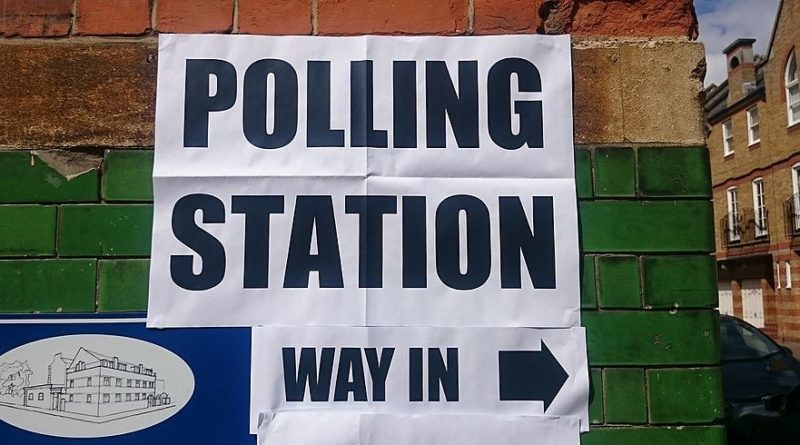Brexit, citizens’ rights, immigration: a guide to the UK election
Brexit, voting rights, immigration rules: in many ways the UK election on December 12 can make a difference for foreign nationals in the UK, UK nationals abroad, and their families. After more than three years of Brexit uncertainty, what to expect from this vote? This is what parties’ are promising in their manifestos.
Brexit
The Conservative Party slogan is “get Brexit done”. With a majority, the Tories will put the current withdrawal agreement through parliament before Christmas and take the country out of the European Union by the end of January. “No more referendums,” says the manifesto. As for the future trade agreement with the EU, it will be negotiated “without extending the transition period beyond December 2020” (under the withdrawal agreement it can be extended until 2022). In the future, the party says, there will be no political alignment with the EU, the UK will stay out of the EU single market and “any form of customs union.”
The Labour Party promises to “rip up the deeply flawed deal negotiated by Boris Johnson” and negotiate a new withdrawal agreement in the first six months of government with “an appropriate transition period.” The future trade deal negotiated by a Labour government will include a “permanent and comprehensive UK-wide customs union”, close alignment with single market rules and continued participation in EU agencies and funding programmes on environment, scientific research and culture. The Labour Party also wants to cover security, access to the European Arrest Warrant and shared EU databases. The future deal will be subject to a legally binding referendum that will include the option of remaining in the EU. Party leader Jeremy Corbyn said he will be neutral. If Remain wins, Labour will still make the case “for radical reform of the EU.” If Leave wins, the party “will work constructively with the EU on vital issues of mutual interest and to the mutual benefit of the UK and EU.” Unlike the Tories, the Labour Party rules out a no-deal Brexit.
The Liberal Democrats promise to stay in the EU and to stop the Brexit process altogether. In other circumstances, the party will “continue to fight for a people’s vote with the option to stay in the EU” and “passionately” campaign for Remain.
The Green Party wants another referendum and will campaign for Remain. The Greens have a programme of action for the EU too, including leading the fight on climate change, improving the lives of workers, low income families and refugees and ensuring more participation of citizens in EU decisions.
The Scottish National Party (SNP) wants to “escape from Brexit.” The SNP supports a second referendum with Remain on the ballot paper and the revocation of Brexit if this becomes the only alternative to “no deal.” The SNP “will always vote to protect Scotland’s place in the single market and customs union,” the manifesto says. The party believes that “the best future for Scotland is to be an independent, European nation” and wants a second independence referendum.
The Brexit Party wants “a clean-break Brexit” with no deal and no transition period.
EU nationals in the UK
The Conservative Party says it wants EU citizens who arrived in the UK before Brexit to stay and will continue the “settled status” scheme to guarantee their rights. “We have committed absolutely to guaranteeing their existing rights and ensuring that they feel a welcomed and valued part of our country and community after Brexit,” they say.
The Labour Party argues that “citizens’ rights should never have been used as a bargaining chip in the Brexit negotiations.” Labour recognizes “the huge anxiety” this has caused for both EU nationals in the UK and UK nationals in the EU and promises to “end the uncertainty created by the EU settlement scheme” granting the automatic right to stay. The party plans a new declaratory system allowing EU nationals to register for proof of status if they wish, but “this will mean they no longer have to apply” to continue living and working in the UK.
The Liberal Democrats see revoking Article 50 as a solution to the problems caused by Brexit and provide no details on the residence status of EU nationals if Brexit goes ahead.
The Green Party says that “whatever happens” the full rights of EU citizens and their families living in the UK should be guaranteed, including the automatic right to settled status. The Greens also want to ensure “there is no rolling back of the rights and protections enshrined in the EU Charter of Fundamental Rights.”
The Scottish National Party (SNP) says in its manifesto that EU citizens living and working in Scotland “significantly enrich” society and deplores that “the UK government is forcing them to apply to retain their existing rights.” The SNP urges Westminster to implement a declaratory system “with proof of status”. The manifesto adds that “in an independent Scotland, the rights of EU nationals will be safeguarded and strengthened.”
British citizens living elsewhere in the EU
Not much is said in parties’ manifestos on the status of British citizens living elsewhere in the EU, whose rights depend on the withdrawal agreement or on national rules in the event of a no deal Brexit.
The Labour Party sees the guarantees offered to EU nationals in the UK as a way to “help ensure reciprocal treatment for UK citizens living in the EU”. The Labour manifesto also promises that the pensions of UK citizens overseas will rise “in line with pensions in Britain.”
Free movement and immigration
The Conservative Party has made immigration control a flagship policy. The Tories want to end free movement of people with the EU and introduce an Australian-style points based system. “Only by establishing immigration controls and ending freedom of movement will we be able to attract the high-skilled workers we need to contribute to our economy, our communities and our public services,” the manifesto says. The Tories intend to reduce immigration but no longer set a target. They promise “fewer lower-skilled migrants” and “special immigration routes” for those who will “make the biggest contribution.” Bespoke visa schemes will be created for people who fill shortages in public services, for start-ups and for students who stay to work after their studies. In particular, there will be an “NHS visa” ensuring doctors, nurses and health professionals who receive a job offer by the National Health Service, have been trained to a “recognised standard” and “have good working English” are fast-tracked, get reduced visa fees and dedicated support for their families entry. The best technology and science graduates from the top universities in the world and those who win top scientific prizes will be offered fast-track entry too. With the new immigration system, citizens arriving from the EU after Brexit will be able to access unemployment, housing and child benefit only after five years (at the moment they have immediate access). Benefits will no longer be allowed for children living overseas. The health surcharge will increase and apply also to EU nationals, while the budget for the “health tourism enforcement unit” will double. The manifesto mentions an increase of the annual quota for the Seasonal Agricultural Workers Scheme from 2,500 to 10,000. The Tories are “committed” to the Windrush compensation scheme, following the scandal that caused the loss of rights and deportation of many citizens who moved from the Caribbean to Britain after World War II.
The Labour Party argues that past targets have undermined the economy and public services and created “a hostile environment” which has “encouraged the demonisation of migrants.” The Labour manifesto says: “If we remain in the EU, freedom of movement would continue. If we leave, it will be subject to negotiations, but we recognise the social and economic benefits that free movement has brought both in terms of EU citizens here and UK citizens abroad.” The party adds that the immigration system must allow “to recruit the people we need, and to welcome them and their families.” So family reunion rights will be extended to non-EU citizens, the minimum income requirements “which separate families” and the deportation of family members of people entitled to stay in the UK will end. On the other hand, Labour promises to “take decisive action to regulate the labour market to stop the undercutting of wages and conditions, and the exploitation of all workers.” Indefinite detention will also end and the money saved from the closure of two immigration detention centres will be used to support “the survivors of modern slavery, people trafficking and domestic violence.” “Fair compensation” will be provided to the victims of the Windrush scandal.
The Liberal Democrats argue that stopping Brexit will save EU’s freedom of movement. The party wants to reform immigration rules and scrap the hostile environment too, while investing in officers and technology to “prevent illegal entry at Britain’s borders.” Under the LibDems, the responsibility of work permits and student visas will be transferred from the Home Office to the Departments for Business and Education respectively, and a new non-political agency will process the applications. Industry bodies should be enabled to sponsor work visas, according to the manifesto. There should also be a new two-year visa for students to work after graduation. The Liberal Democrats say they will abolish the minimum income requirement for spouse and partner visas, reduce the fee for registering a child as a British citizen from 1,012GBP to the cost of administration, and waive the application fees for members of the Armed Forces on discharge and their families. Immigration detention should be “an absolute last resort” and not last more than 28 days. The party wants to close seven of the UK’s nine detention centres and prevent public agencies from sharing personal data with the Home Office for the purposes of immigration enforcement.
The Green Party wants to end the hostile environment and replace the Home Office with a Ministry for Sanctuary and a Ministry of the Interior. The Ministry for Sanctuary will be responsible for enforcing migration rules “with compassion and due regard for human rights.” This will include the abolition of income requirements for people joining family members in the UK and compensation for the victims of the Windrush scandal. The Ministry of the Interior will oversee domestic security. The Greens want a “new humane” immigration system with no minimum income rules for visas, full workplace rights and recourse to public support for those who need it. They also aim to end indefinite detention, close the immigration detention centres and scrap health charges for migrants.
The SNP will seek the devolution of immigration powers. The party opposes the ‘hostile environment’ and warns that ending free movement with the EU “will increase the risk of Scotland’s working population falling,” damaging the economy and public services. The SNP is against minimum salary threshold for EU citizens moving to the UK in the future, immigration skills charges for employers, and minimum income requirements for family visas. The party says the citizenship application process should be simplified and its costs reduced. The SNP will “continue to campaign” against indefinite immigration detention.
The Brexit Party intends to “crack down on illegal immigration” and reduce annual immigration through a points system.
Democratic Rights
The Conservative Party does not want to change the current voting system, but plans to request an identification document at polling stations and to stop “postal vote harvesting.” The Tories want to “make it easier” for Britons overseas to vote in parliamentary elections and get rid of the rule by which they lose voting rights after 15 years of absence from the country. They plan to establish a Constitution, Democracy & Rights Commission to examine how “our democracy operates.” In addition, they want to limit judicial reviews: “We will ensure that judicial review is available to protect the rights of the individuals against an overbearing state, while ensuring that it is not abused to conduct politics by another means or to create needless delays,” the manifesto says.
The Labour Party promises “the largest extension” of voting rights in generations, reducing the voting age to 16, giving full voting rights to all UK residents, introducing an automatic voter registration and “abandoning plans to introduce voter ID which has been shown to harm democratic rights.” Labour will “work to abolish the House of Lords” in favour of an elected Senate of the Nations and Regions, but this will be subject to the organisation of a Constitutional Convention led by a citizens’ assembly.
The Liberal Democrats also argue that EU nationals “should be afforded the right to full participation in civic life, including the ability to stand for office and vote” in UK referendums and general elections, as well as local and EU elections. Liberal Democrats will extend these voting rights to all EU citizens who have lived in the UK for at least five years. They will also reduce the voting age to 16, give the right to vote to all Brits abroad in UK referendums and parliament elections in separate overseas constituencies. They intend to reform the electoral law introducing proportional representation, requiring that councils inform citizens of what they have to do to register to vote and scrapping the requirement to bring identification documents to the polls.
The Green Party wants to replace the current voting system with a proportional one and give the vote to 16-year-olds. “We will also allow people to stand for parliament and all other elected offices from the age of 16, offering support to elected young people so that they can combine their duties with studying,” the manifesto says. The Greens support the creation of a fully elected House of Lords for a maximum of ten years, with half of the house being elected every 5 years.
The SNP wants to change the current voting system with the Single Transferable Vote, “a system that makes sure every vote and every part of the country counts.” Scotland has already extended the right to vote to 16 and 17-year-olds and to EU nationals in the Scottish Parliament and “will work to extend the franchise for Westminster elections to include EU citizens and all those with a right to remain in the UK.” The SNP supports the abolition of the House of Lords.
The Brexit Party wants a reform of the voting system to “make it more representative,” overhaul the postal voting system “to combat fraud and abuse” and abolish the House of Lords.
The UK election will take place on December 12. Each of the 650 constituencies across the country will elect a member of the House of Commons, the lower chamber of the UK parliament. A party needs to win 326 seats to secure a majority and be asked by the Queen to form a government.
More information on the parties’ programmes is available in the Conservative, Labour, LibDems, Green Party, SNP and Brexit Party manifestos.
Claudia Delpero © all rights reserved.
Photo via Descrier on Wikimedia Commons.
Europe Street News is an online magazine covering citizens’ rights in Europe. We are fully independent and we are committed to providing factual, accurate and reliable information. Our recent survey has shown that about two thirds of the people impacted by Brexit lack information about their rights and awareness is generally low for anything related to EU rights. We believe citizens’ rights are at the core of democracy and information about these topics should be accessible to all. This is why our website and newsletter are available for free. If you enjoyed reading this article, please consider making a contribution so we can continue and expand our coverage.






